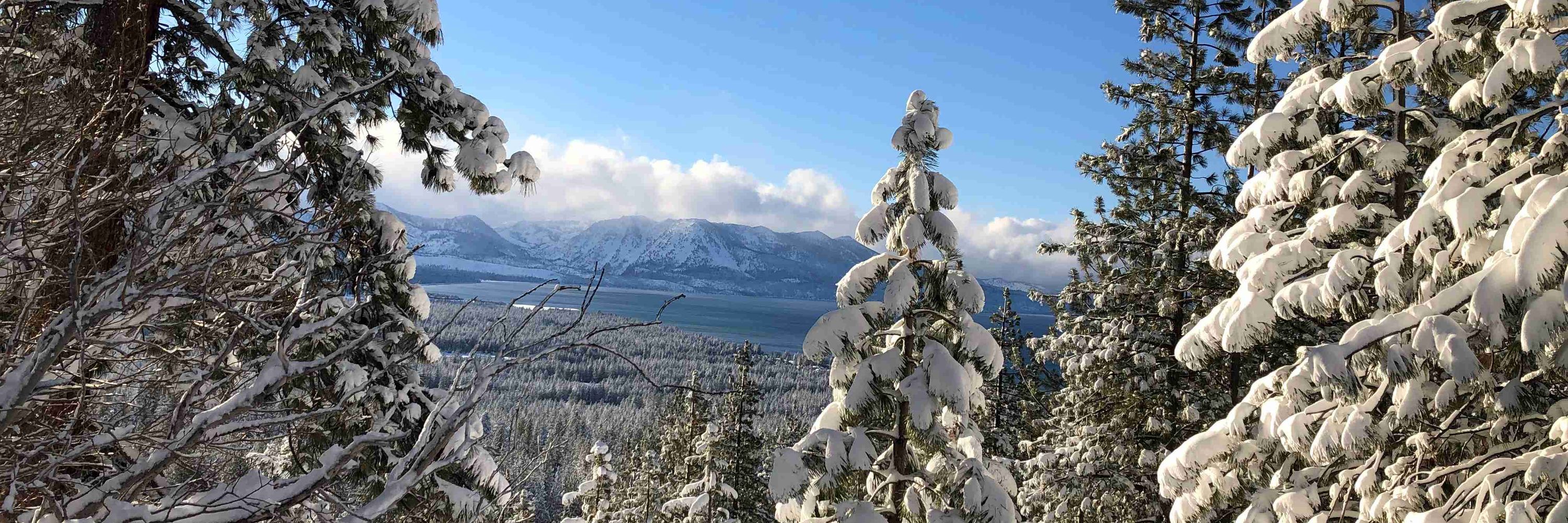
Today we’re featuring @baileycrowley.bsky.social who shares a great snapshot of her current journey. Thank you Bailey!
If you haven’t joined yet, we’d love to hear from you: a quick video, audio note, or image set is all it takes. Any language is welcome! 🚀
Team up w/ us, @saskiahogenhout.bsky.social & @berasymbionts.bsky.social to answer how microbes shape insect behavior:
biodtp.norwichresearchpark.ac.uk/projects/mic...

Team up w/ us, @saskiahogenhout.bsky.social & @berasymbionts.bsky.social to answer how microbes shape insect behavior:
biodtp.norwichresearchpark.ac.uk/projects/mic...
Phages may drive microbial diversity, yet we often don’t even know how phages & bacteria correlate in nature. Our new study tackles this in the honeybee gut, thanks to the great work of PhD student @malickndiaye.bsky.social at @dmf-unil.bsky.social @fbm-unil.bsky.social

Phages may drive microbial diversity, yet we often don’t even know how phages & bacteria correlate in nature. Our new study tackles this in the honeybee gut, thanks to the great work of PhD student @malickndiaye.bsky.social at @dmf-unil.bsky.social @fbm-unil.bsky.social
📅 Wednesday, October 29th
🕙 12pm EST (Massachusetts) / 12pm CLT (Chile) / 4pm WEST (Oeiras)
📍 over Zoom (PM for link)
@symbnet.bsky.social
@moorefound.bsky.social
@mblscience.bsky.social
@ECODIM

📅 Wednesday, October 29th
🕙 12pm EST (Massachusetts) / 12pm CLT (Chile) / 4pm WEST (Oeiras)
📍 over Zoom (PM for link)
@symbnet.bsky.social
@moorefound.bsky.social
@mblscience.bsky.social
@ECODIM

by Hiroshi Arai (@haraipapilio.bsky.social), Daisuke Kageyama (@daisukekageyama.bsky.social) & co
"Why [and how] do maternally inherited endosymbionts kill male hosts?"
Find out here:
www.sciencedirect.com/science/arti...

by Hiroshi Arai (@haraipapilio.bsky.social), Daisuke Kageyama (@daisukekageyama.bsky.social) & co
"Why [and how] do maternally inherited endosymbionts kill male hosts?"
Find out here:
www.sciencedirect.com/science/arti...
📅 Wednesday, August 27th
🕙 11am EST (Massachusetts) / 11am CLT (Chile) / 4pm WEST (Oeiras)
📍 over Zoom (PM for link)
@symbnet.bsky.social @moorefound.bsky.social @mblscience.bsky.social @ECODIM

📅 Wednesday, August 27th
🕙 11am EST (Massachusetts) / 11am CLT (Chile) / 4pm WEST (Oeiras)
📍 over Zoom (PM for link)
@symbnet.bsky.social @moorefound.bsky.social @mblscience.bsky.social @ECODIM
www.biorxiv.org/content/10.1...

www.biorxiv.org/content/10.1...
For every one of the 47 bee genera we have beautiful photo(s) and natural history facts
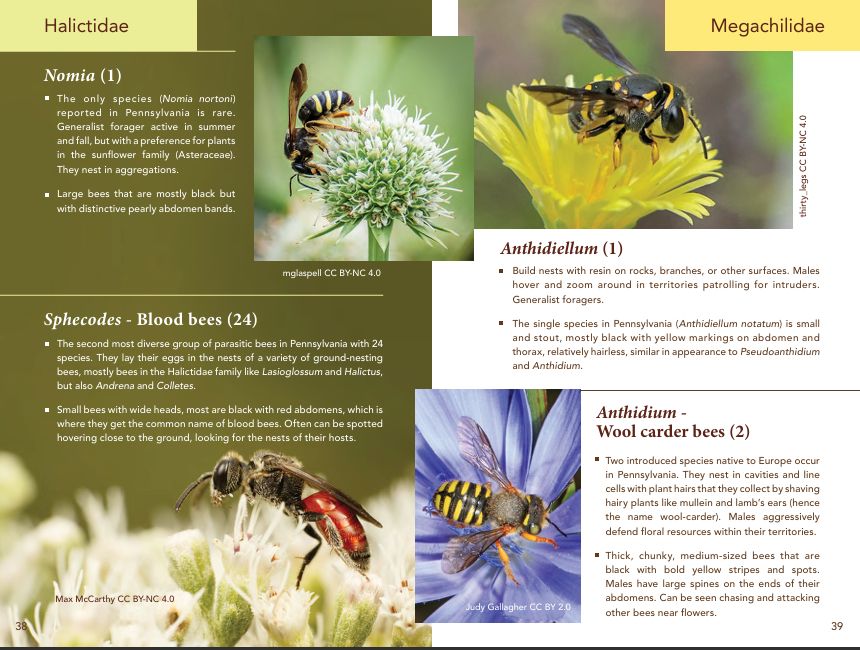
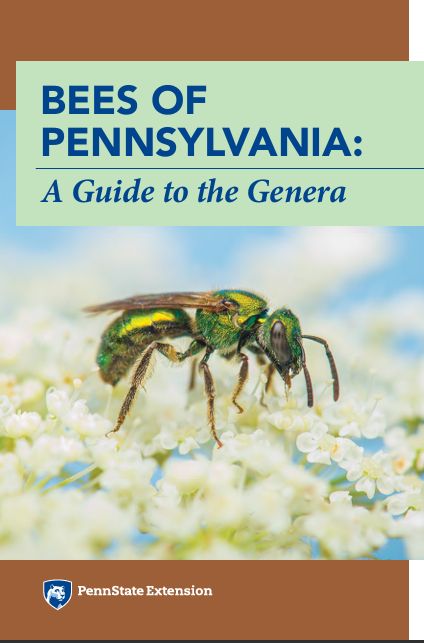
For every one of the 47 bee genera we have beautiful photo(s) and natural history facts
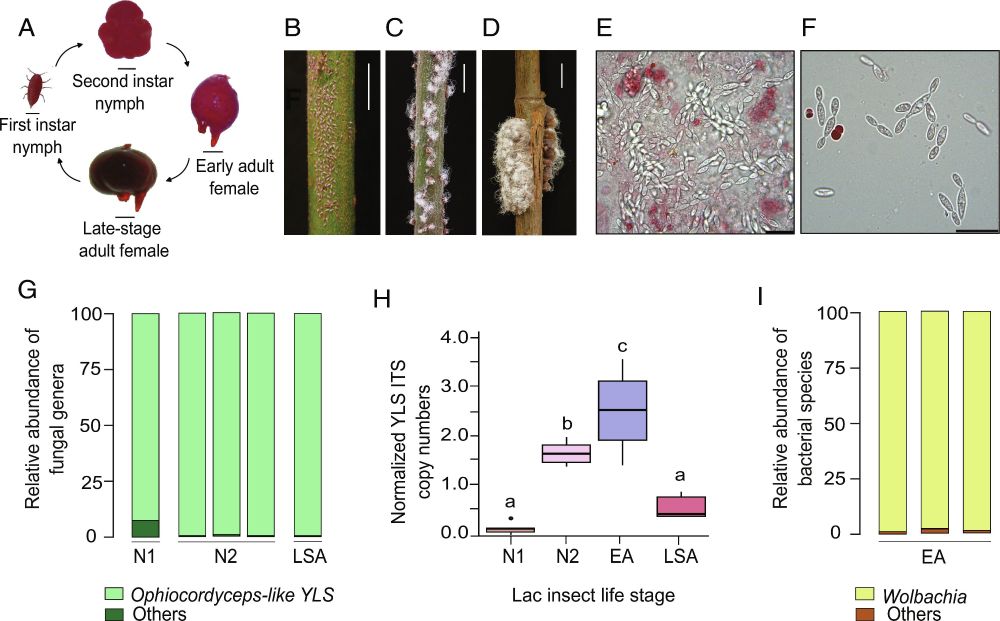
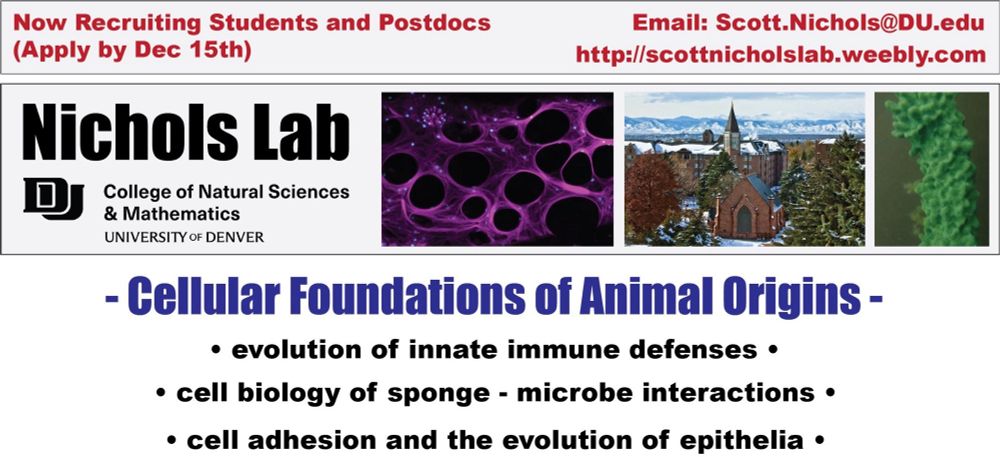
academic.oup.com/g3journal/ad...
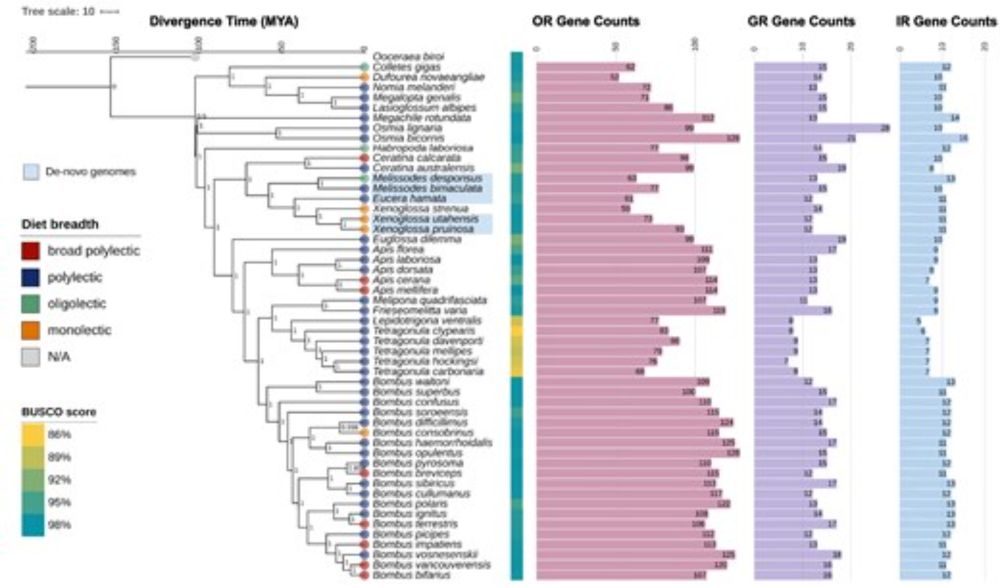
academic.oup.com/g3journal/ad...
Please reach out if you are interested in attending.
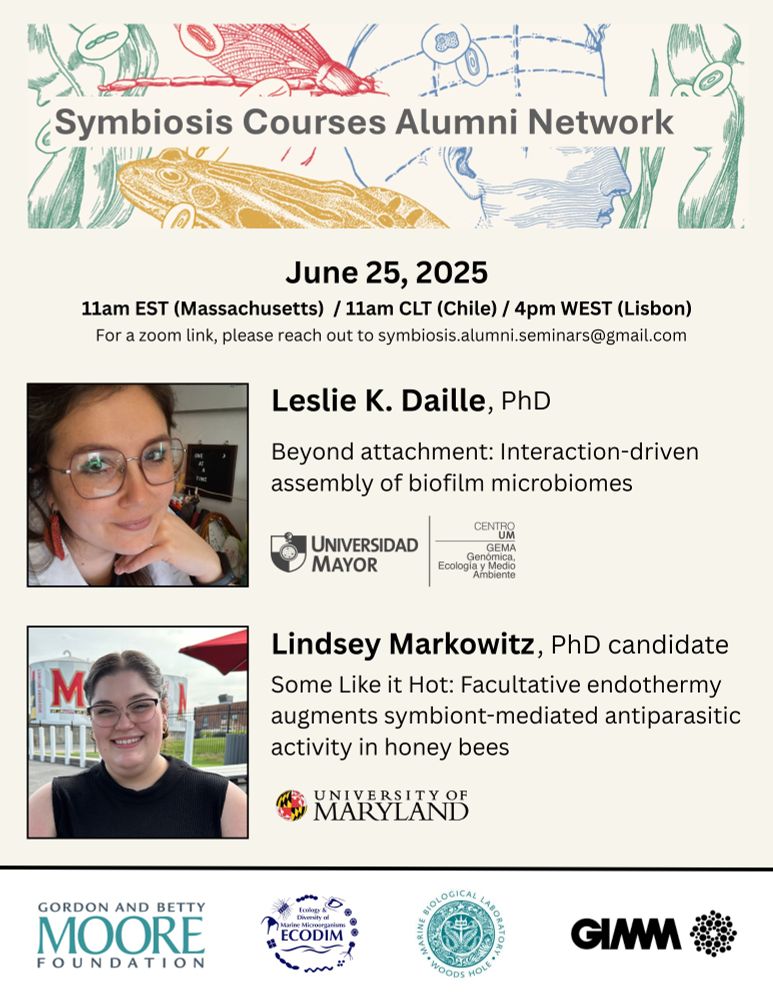
Please reach out if you are interested in attending.
www.youtube.com/watch?v=yAun...

www.youtube.com/watch?v=yAun...
Cool unique role for someone interested in life sci, sci comm, and outreach/education!

Cool unique role for someone interested in life sci, sci comm, and outreach/education!
📆 May 27-28th, 2025
🕐 8pm on May 27th Lisbon time / 3pm on May 27th New York time/ 3pm on May 27th Santiago time / 7am on May 28th New Zealand time
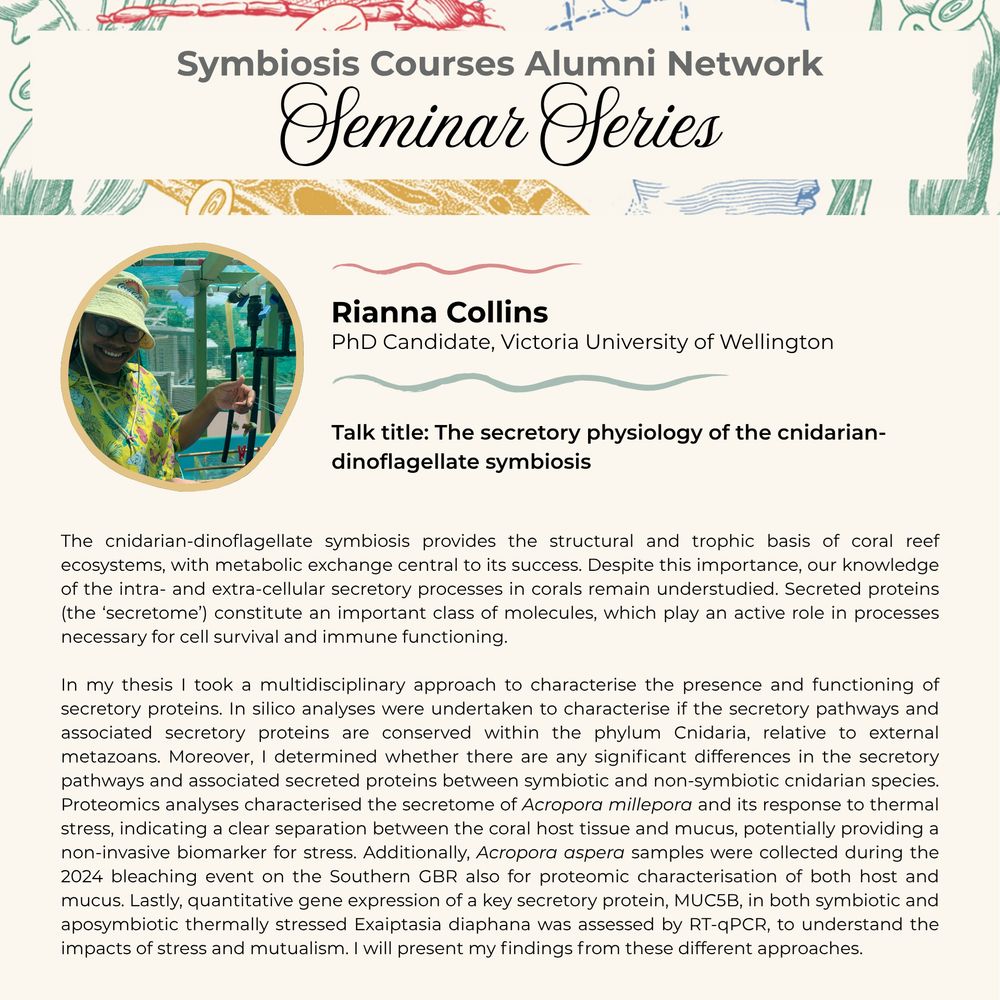
📆 May 27-28th, 2025
🕐 8pm on May 27th Lisbon time / 3pm on May 27th New York time/ 3pm on May 27th Santiago time / 7am on May 28th New Zealand time
doi.org/10.1007/s002...
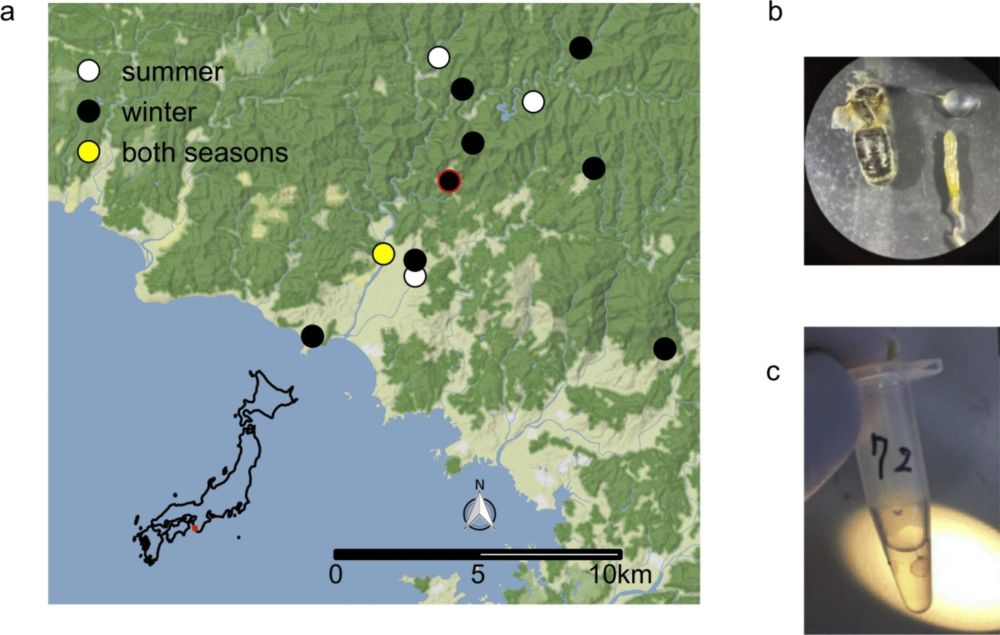
doi.org/10.1007/s002...

🧪Chemical ecology: tinyurl.com/chem-ecol-symb
🦠Phytopathology & mutualisms: tinyurl.com/symb-plantpath
#SymbioSky #PlantPathology
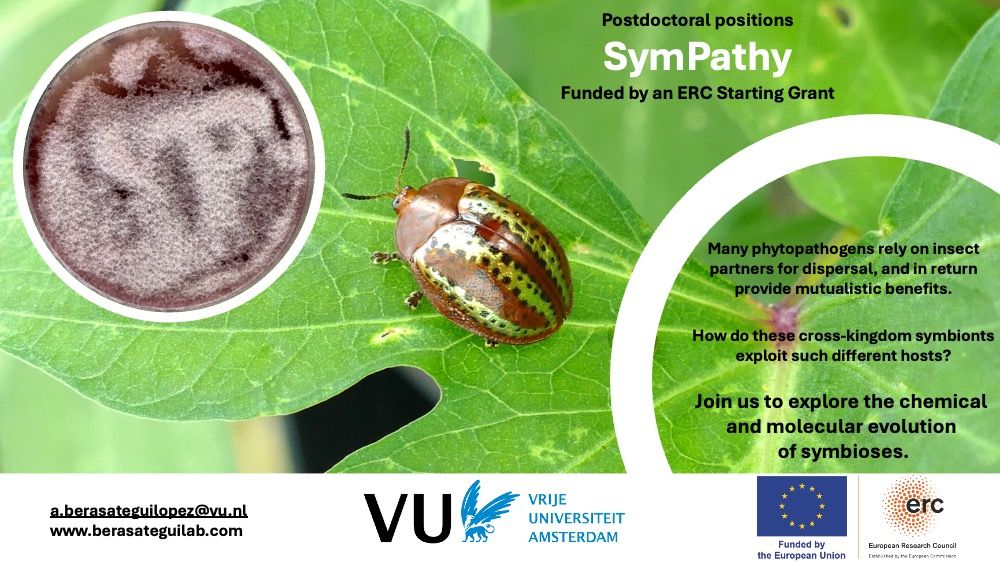
🧪Chemical ecology: tinyurl.com/chem-ecol-symb
🦠Phytopathology & mutualisms: tinyurl.com/symb-plantpath
#SymbioSky #PlantPathology
www.federalregister.gov/documents/20...
You can read more about the harms here:
www.npr.org/2025/04/17/n...

www.federalregister.gov/documents/20...
You can read more about the harms here:
www.npr.org/2025/04/17/n...
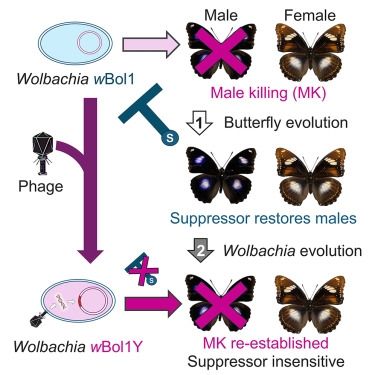
🔬 Two weeks remain to apply for AI@MBL: bit.ly/43vIT0u
🐙 Molecular and Cell Biology of Symbiosis is extending its deadline to April 14: bit.ly/4ig81fJ
#sciencestartshere


🔬 Two weeks remain to apply for AI@MBL: bit.ly/43vIT0u
🐙 Molecular and Cell Biology of Symbiosis is extending its deadline to April 14: bit.ly/4ig81fJ
#sciencestartshere

